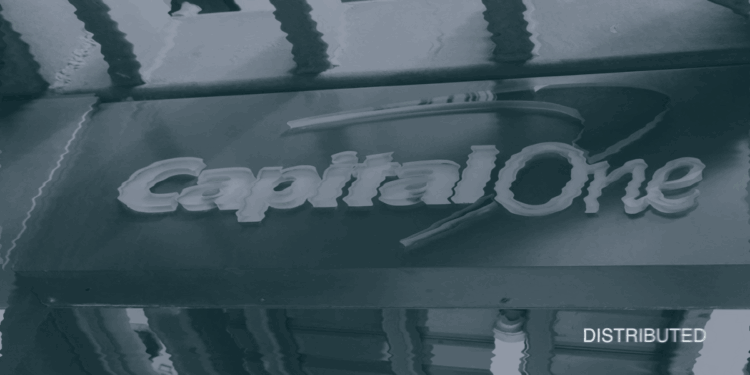- The deal also gives Capital One control of Discover’s payments network.
- The firm will reportedly gain access to Discover’s proprietary card processing network, allowing it to compete more directly with Visa and Mastercard.
US banking regulators have officially approved Capital One’s $35.3 billion acquisition of Discover Financial Services, setting the stage for the creation of a payments and lending powerhouse that could challenge Visa and Mastercard’s long-standing duopoly.
According to a Reuters report, the Federal Reserve and the Office of the Comptroller of the Currency announced on Friday that they had completed their review of the proposed merger and approved the deal, which is now scheduled to close on May 18.
The merger will combine Capital One’s vast credit card business with Discover’s card network infrastructure, producing the largest credit card issuer in the U.S. by outstanding balances and the eighth-largest bank in the country by total assets.
See Related: Bitcoin Whitepaper Removed From Apple Computers Weeks After The Shocking Discovery
A New Player In The Payments Network Space
Capital One’s acquisition of Discover is more than a credit card expansion. The deal gives Capital One access to Discover’s proprietary card processing network, enabling it to compete directly with the payment giants Visa and Mastercard for merchant transaction volume.
Although regulators approved the deal, they attached several conditions. The OCC required Capital One to submit a corrective plan to address enforcement actions still pending against Discover Bank. The Federal Reserve also imposed a consent order on Discover and a $100 million fine for excessive interchange fees charged between 2007 and 2023.
In a separate action, the FDIC ordered Discover to pay an additional $150 million penalty for related overcharging issues. These penalties underscore the scrutiny Discover faced in the run-up to the merger and illustrate the regulatory challenges large banking deals must overcome even under a more merger-friendly administration.
Discover customers could benefit from broader merchant acceptance under the Capital One umbrella, but there are concerns about potential increases in interest rates. Capital One has historically focused on subprime borrowers, who tend to face higher rates due to increased credit risk.
As the merger finalizes next month, the industry will closely watch how Capital One integrates Discover’s assets and operations—and whether it can truly reshape the landscape of credit cards and digital payments in the U.S.



